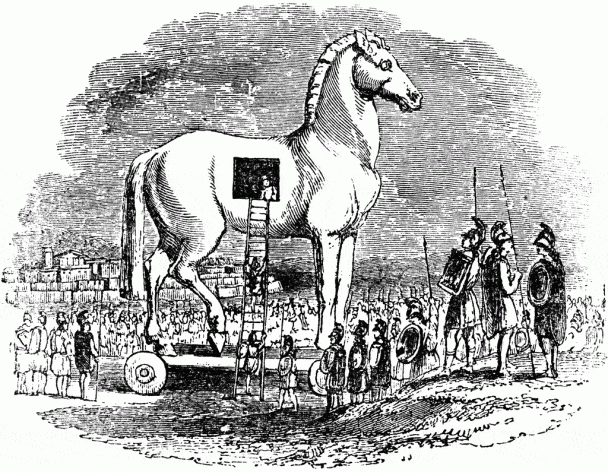Sentimental X-Ray of Chavismo (XIII): Beleaguered Fortress


Orinoco Tribune – News and opinion pieces about Venezuela and beyond
From Venezuela and made by Venezuelan Chavistas

By Reinaldo Iturriza
You are inside a fortress that is being besieged. As warranted, you are defending it with all your strength. In the middle of the combat you observe some people inside the fortress who, instead of defending it, and while they say they defend it, are looting it. Are you a traitor if you accuse looters? Or are you a traitor if you keep silent?
No one in their right mind will prefer silence. Unless, of course, it is the looters or their accomplices. But even in such a case, the imposter may apply that way of the street pickpocket who, to mislead the unsuspecting passers-by, begins to shout: “To the thief, to the thief!”
So the matter of silence borders on a false dilemma. For those of us who defend the stronghold, silence is simply not an option. The issue is how to break it.
We often raise another false dilemma: economic war or corruption. Certainly, such an abuse of the expression “economic war” has been made, that for a time now, its mere mention usually generates an immediate rejection. The problem with the expression is that it supposes what must be explained: mediations can not be dispensed with so lightly that allow us to understand how it manifests itself, what its effects are, how the forces involved operate. That is to say, as in any war, matters relating to tactics and strategy.
In addition, as is logical, it is necessary to explain what is being done to face the aggression. It is very common to hear comments of the type: in a war the shots are from side to side, and in this case, the shots are only being received by us.
RELATED CONTENT: Sentimental X-Ray of Chavismo (XIV): Bad Faith
The thing got complicated when the expression is used by characters that are not, at all, ethical referents of Chavismo. Then, economic warfare sounds like a mere pretext, a smokescreen for, in the worst case, turning the guns on the same people that are said to be defended, or to disguise what is popularly perceived as the most complete absence of counter-offensive actions. Again: as if the economic war was a fatality, something to which we have to resign ourselves, while someone else assists us and helps us to heal some of our wounds.
It is really a mystery why some people find it so difficult to understand that for a political subject like Chavismo, war without epic is inconceivable, that is, a war in which the popular classes are reduced to the role of victims that must be protected. Nothing is further from the character of Chavismo which, of course, has been building its own account of war, not only because it suffers from its bloody effects, but because it is not willing to remain passive.
The war is real, of course, and not only expressed itself in the economic field. The problem, to a large extent, are the deep limitations of the official discourse on war. It is these limitations, added to the popular disorientation that is typical of situations of this nature, that explain the false dilemma: economic war or corruption.
If public services collapse, one of the objectives of the hybrid war against Venezuela, the matter can not be dismissed by attributing the event to economic warfare, as if it were a magical expression endowed with omni-explicative powers. Since public services also collapse because there are corrupt officials who support the collapse, because the situation allows them to profit. In the same way, there are elements within the institutions that view their privatization with good eyes, and the corrupted civil service acts as a beachhead, creating the conditions to eventually achieve that goal.
For whom is this situation convenient? The corrupt official profits, as do the privatizing elements. But the main beneficiary is the one who maintains the siege against the fortress. Someone else is doing the mole’s work for him, someone else is making havoc behind the enemy lines, in our territory.
RELATED CONTENT: Venezuelan Delegation Arrives in Barbados to Continue Dialog
There is no such dilemma: economic war or corruption. Without claiming to absolve anyone’s responsibility at all, it is strictly true that corruption is an expression of the cultural degradation induced by those who wage war against us. And it is not a new phenomenon: it’s happened since the Conquest. It degrades by conquering and dominates by degrading the population, inducing the corruption of its leaders, of its institutions.The problem is not moral, but fundamentally political. Those who besiege us celebrate their partial victories when they see us posing those false dilemmas, and feeling miserable about the levels that our degradation has reached.
Breaking the silence is the easiest way to stop this process of degradation. And the best way to do it is to act without contempt against those who plunder the fortress, often in plain view of everyone, trafficking in food or medicine in the public thoroughfare, smuggling, demanding improper payments in cash or in kind to producers on the roads, and many other times out of public scrutiny, signing agreements with elements of the parasitic bourgeoisie, offering to those who already take advantage of us, all possible advantages to continue plundering us.
It can be argued, quite rightly, that the widespread accusation and without evidence is as unacceptable as counterproductive, and that it is itself an expression of the degradation we wish to conjure. But when so many tests are so obvious, betrayal is in not acting. Not acting is like opening the doors of the fortress while saying defend it, betraying a people willing to fight.
Translated by EF/JRE

Reinaldo Iturriza, Venezuelan sociologist and writer, who was Minister of Popular Power for Culture as well as Minister of Popular Power for Communes and Social Movements